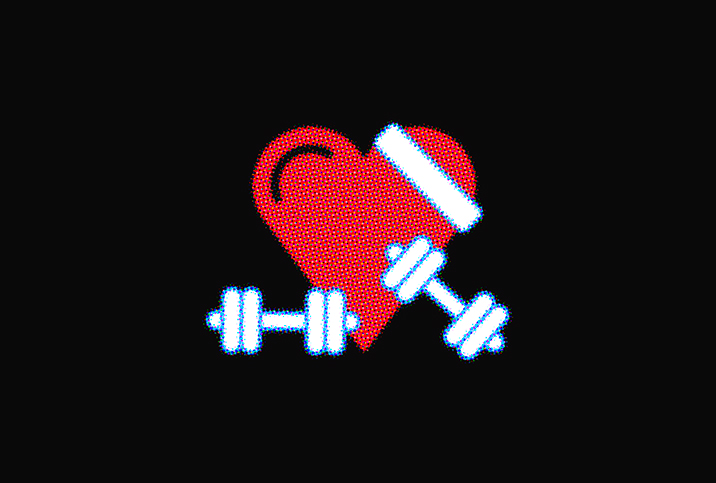How to Keep Triglycerides at Safe Levels

The levels of triglycerides in people's blood are steadily declining, a positive sign for general health.
According to research, the percentage of adults ages 20 and older with high triglyceride levels fell from 33.3 percent during 2001 to 2004 to 25.1 percent over the course of 2009 to 2012. Adults ages 60 and older also reported declines across the same time periods: in men, from 39.9 percent to 24.8 percent, and in women, from 43.5 percent to 30.9 percent.
Similar to blood pressure and cholesterol, triglyceride levels must be monitored as a part of overall health. Like cholesterol, you find triglycerides in your blood. The former is used to build cells and certain hormones, and the latter is used to store unused calories in case your body requires energy.
While high triglyceride levels are not a priority for most people, they should be.
What causes high levels of triglycerides?
In the simplest terms, triglycerides are lipids, or fat cells. These cells represent energy stored in our bodies for later use. Evolutionarily speaking, our bodies are designed so we can save up our fuel (fat and sugar) and have the energy we need to live our lives.
If we consume higher amounts of fat, sugar and carbohydrates than we burn in the short term, our body stores these calories. Typically, this fat is stored in your stomach, hips, buttocks and organs such as the liver.
However, if a sedentary lifestyle continues, our bodies store more and more fat even if it never gets used. Eventually, this fat remains in our blood and can cause blockages, heart and vascular disease, and type 2 diabetes, and increase the risk of pancreatitis and other chronic diseases such as erectile dysfunction (ED).
The healthy level for triglycerides is less than 150 milligrams per deciliter (mg/dL) of blood. A borderline high level is 150 to 199 mg/dL, while a high level is about 200 to 499 mg/dL and a very high level is more than 500 mg/dL.
Triglycerides are lipids, or fat cells, which represent energy stored in our bodies for later use.
The most common cause of high triglycerides is a diet that is high in calories and carbohydrates. Alongside high-calorie food, you should reduce your consumption of alcohol and sugar-based products, such as candy, cereal, ice cream and any product that lists corn syrup, fructose, glucose, honey, maltose or sucrose as the first ingredient.
Other causes for high triglycerides include genetics, inflammation, smoking cigarettes, an underactive thyroid and vitamin D deficiency. Drinking coffee—especially coffee that has not been filtered—has been linked to elevated triglycerides. Studies also indicate that sleep deprivation raises cholesterol, blood pressure and triglyceride levels.
Chronic stress may be a factor, too, as an increase in stress hormones, such as cortisol among others, can lead to high blood pressure, blood sugar, cholesterol and triglycerides.
High triglycerides can result as a side effect of specific medications, such as beta blockers, diuretics, estrogen and progestin, retinoids, steroids, some HIV treatments and some immunosuppressants.
Treatments for high triglycerides
Since elevated triglyceride levels decrease blood supply to the heart, you may notice chest pain. In the same way, a decrease in blood to the brain could result in blurred vision, confusion, dizziness, numbness and severe headaches.
Symptoms are often an indication of hardening arteries, potential arterial blockages and possibly diabetes, so it is important to start transitioning to healthy lifestyle choices as soon as possible.
In the effort to manage triglycerides, any major changes to your diet or exercise regimen should be made in concert with a healthcare provider. Your doctor likely has a better idea of your triglyceride level than you do, because it is measured as part of your annual blood panel.
"When it comes to chronic diseases like diabetes and heart disease, these conditions are completely treatable with diet and lifestyle choices, regardless of the hereditary factors working against the patient," said Mark Schutta, M.D., director of the Penn Rodebaugh Diabetes Center in Philadelphia. "In my experience, diet and exercise are the main recommendations for treatment of chronic disease."
The best way to reduce triglycerides is to exercise for at least 30 minutes every day. Often a misnomer, this activity doesn't require marathon training or lifting more than your body weight. Instead, subtle changes such as taking the stairs instead of the elevator or taking a walk at lunchtime can be enough to help.
Cutting calories and losing weight are helpful, too. Avoiding sugar, refined carbohydrates and saturated fats can also help prevent further weight gain. Of course, cutting down on alcohol and quitting cigarettes are often the first recommended changes.
Studies indicate that triglyceride levels are reduced the most during the first six months of a low-calorie diet.
If a patient tries and fails to reduce their triglycerides levels through diet and exercise, or more commonly, the patient reduces their levels but can't get below 150 mg/dL, medication may prove helpful in expediting the process.
New treatments are constantly in the works, but four effective treatments are fibrates, statins, fish oil and niacin. These treatments are typically taken orally and can help you manage lipid levels. Depending on your overall health, your doctor may prescribe statins as part of their protocol for treating chronic conditions such as diabetes.
These treatments are designed to aid your attempt to lower your triglycerides levels and do not represent an instant cure. Thus, it's still important to make lasting changes to your diet and lifestyle.
Genetics
While your lifestyle choices can protect you from chronic disease, you may discover you have a genetic predisposition for certain conditions. If you're in this category, you need to be especially diligent.
Patrice Lindsay, Ph.D., director of health systems change for Heart & Stroke, based in Toronto, recommended diligent monitoring of your blood levels. These tests should be performed at your annual physical. Like any other chronic disease, catching these changes in levels earlier can help prevent degenerative effects.
"Genetics is definitely a factor, but when we monitor those with genetic predisposition and can get them to manage their lifestyle, we can prevent the occurrence of high blood pressure, heart disease, stroke or heart attack," she said.
The prospect of altering your life to manage a chronic condition can be stressful, but taking care of yourself ensures you're reducing the risk of chronic health conditions, so you can be happier and healthier and live longer.




















